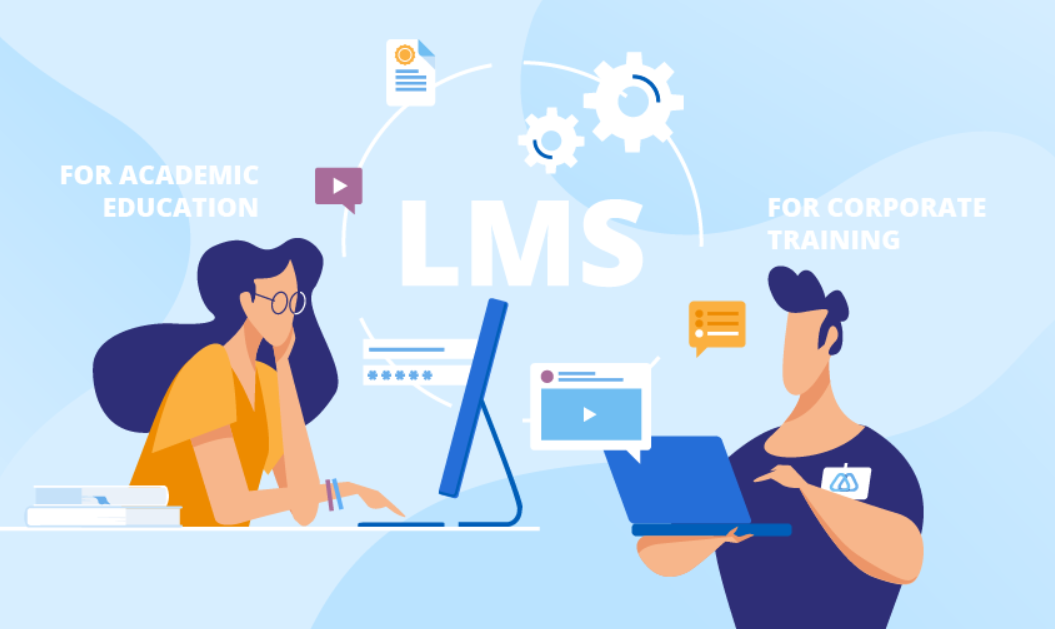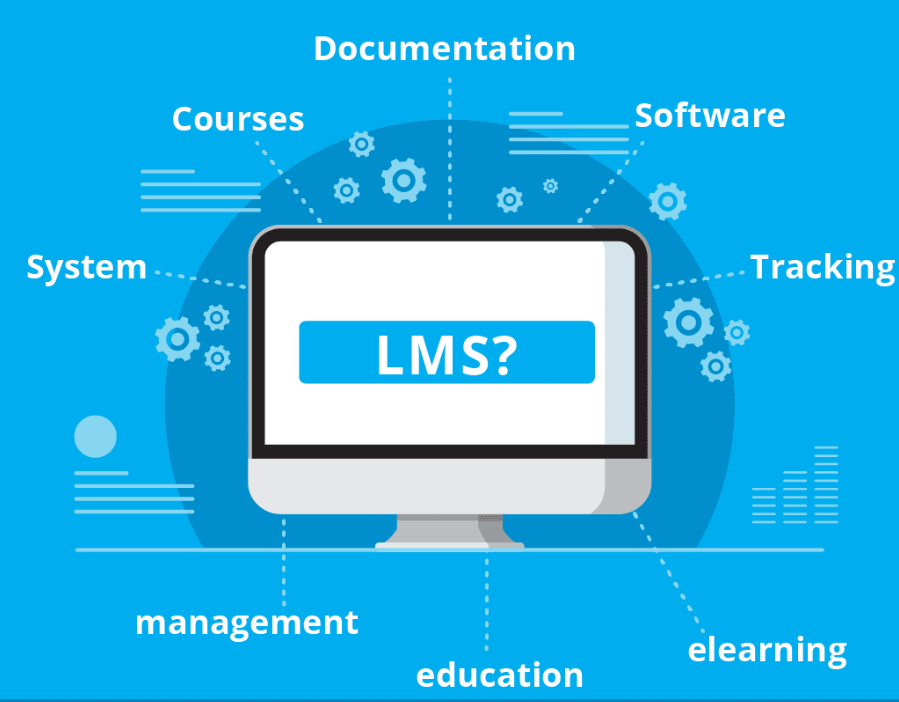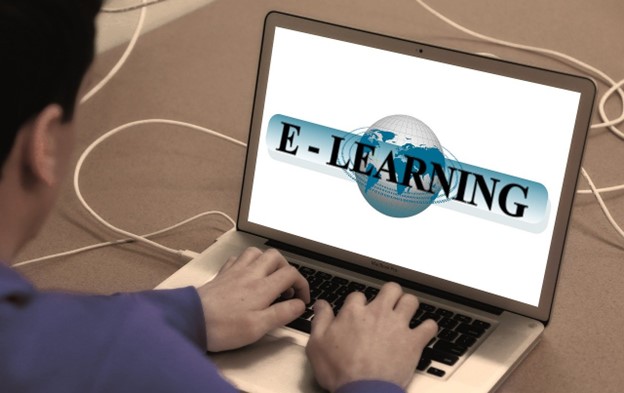A learning management system (LMS) is like a particular software application that helps with learning.
LMS is designed to simplify tasks for individuals in charge of training and development, such as
- Defining and evaluating organizations
- Individual learning goals
- Monitoring progress toward those goals,
- Data collection and dissemination to monitor the curriculum.
People call it different names, like the Training Experience or Learning Experience Management Plan. It’s also useful for training and learning, similar to having an assistant.
Why Use A Learning Management System?
Let’s discuss the benefits if you’re still wondering what an LMS is and why you should have one.
Cost Savings
Training and learning delivered through an LMS reduces employee travel, improves training costs and usability, and reduces payments to facilities and trainers. From a cost-savings perspective, an LMS is a no-brainer.
Training Consistency
Training and learning through LMS is consistent because it is centrally located. Provides consistent quality training and education to all staff by providing content, curriculum materials and guidance from a single source.
Manage Compliance
It can help an LMS meet these legal and regulatory requirements.
Easily track student progress and performance.
The LMS can quickly generate training reports for the entire company or at the user/student level. Using an LMS for e-learning courses and online training allows instructors to easily track objective progress, knowledge acquisition, and ROI.
Generally, LMSs have more capabilities than those listed.
Top LMS for 2023: A Comprehensive Review
- SkyPrep
- Share knowledge
- LearnWorlds
- Thinkific
- Avatao
- Skillsoft
- TalentLMS
- Groundwork1
- Canvas
- Joomla
- Brightspace
Let’s review them in detail
SkyPrep
Overview
SkyPrep is an award-winning LMS that simplifies training delivery, management, and tracking. Its intuitive platform allows for the quick creation of online programs, course creation, and performance tracking. It also enhances learning experiences with game-based learning.
Features
- Course creation
- Real-time reporting
- Course distribution
Limitations
The restricted functionality of SkyPrep’s course-building tool necessitates users to delete outdated films and submit fresh ones to the Resource Centre.
Pricing
The monthly cost ranges from $199 to $499 USD and provides a 14-day free trial.
ShareKnowledge
Overview
ShareKnowledge is a cloud based LMS designed to streamline training and development processes. It integrates seamlessly with Microsoft SharePoint.
It addresses corporate training pain points and enables compliance tracking, making it a top choice for SharePoint users.
Features
- eLearning Materials and Activities
- Role-Based Interface
- Interface Personalization
- Social Learning
Limitations
Pulling reports can be a challenging task.
Pricing
The customer’s needs and demands determine the ShareKnowledge software’s pricing.
LearnWorlds
Overview
LearnWorlds is a cloud-based learning management software with a flexible learning experience, which allows users to create interactive videos, e-books, writing, certifications and assessments, and is customizable for online learning in various studies. Is a site-builder with resources?
Features
- Very customizable site designer.
- Simplifying curriculum.
- Advanced reporting tools.
Limitations
There is no free trial or plan
Pricing
Starting rates are $24 per month; Pro Trainer costs $79; the study center costs $249; and Custom company policies are also offered. Each plan is billed once a year. There is also a 30-day free trial.
Thinkific
Overview
Thinkific allows users to create, promote and sell their knowledge with complete control over their business and brand. Users can customize, add a logo and preview content before publishing.
Features
- Simple curriculum
- Create promotional websites
- Earn money in course content
Limitations
Only the more expensive Premier package gives you access to its best features.
Pricing
The following settings are given here
- Free system available
- Basic plan – $39/month
- Pro – $70/month
- Premier – $399/month.
Avatao
Overview
Avatao is a cloud based LMS solution that revolutionizes cyber security training and skill development. It transforms conventional approaches by providing a user-friendly interface and an immersive learning environment.
It offers hands-on learning through interactive challenges.
Features
- Interactive Learning Modules
- Gamification And Challenges
- Real-World Challenges
Limitations
It uses lots of resources.
Pricing
The software provides a yearly plan with transparent Avatao pricing for businesses and enterprises, starting at $360 per user annually.
Skillsoft
Overview
Skillsoft is an LMS that runs in the cloud and employs adaptive learning technologies to customize courses. It offers various courses, collaboration tools, mobile learning, and offline access to content, making it a popular choice for practical training.
Features
- Customizable Learning Paths
- Certification And Compliance Management
- Extensive Course Library
Limitations
The platform has received complaints for its limited use of videos and lack of labs, making it challenging to assess comprehension through these methods.
Pricing
The software offers price packages starting at $19 monthly for individuals, teams, and businesses.
TalentLMS
Overview
TalentLMS is a highly flexible learning management system providing a concise, relaxed, straightforward, hassle-free learning experience. It’s an online e-platform that’s always accessible, offers excellent scalability, and has plenty of energy left.
Robust software development tools are provided that can be adapted for different e-learning systems.
Features
- Strong curriculum writing
- Branding
- Marketplace
Limitations
TalentLMS must improve its customer service department, control different languages, and implement systematic and reliable learning solutions and resources.
Pricing
Prices can range from $29 to $349 per month, depending on the annual fee. Moreover, a free version supports five users and ten courses.
Groundwork1
Overview
Groundwork1 makes it easy to deliver training materials via email, allowing employees to complete courses like reading an email newsletter. The plan includes communication links to follow, a training grid, and reminders to complete the training until completion.
Features
- Detailed notes
- Automatic reminders of incomplete training
- Tracking videos
- E-signatures
Limitations
The document states compatibility issues with SCORM and that communication features like message boards are not included.
Pricing
Costs are determined by the number of people expected to be trained. The price is $15 per year for 20 users and $5.50 per year for 1,000 users.
Canvas
Overview
Canvas is a popular learning management system that provides students and teachers with an intuitive, open way to showcase their skills while giving great speed, security, scalability and low risk.
Features
- Collaborative workspace
- Integrated Learning Outcomes
- RSS support.
Limitations
The gradebook can be simplified, and the e-portfolio section can be improved for better accuracy.
Pricing
It costs $22.50 USD per user per year. Customers can also download its free trial.
Joomla
Overview
Joomla LMS is a world-renowned LMS that provides teachers and students with customizable virtual learning experiences. It is designed for organizations to train employees, teach students, and sell courses online, creating a safe environment.
Features
- Language platforms supporting SCORM 1.2, 2004, 2004.
- Self-registration
- Customizable user profiles.
Limitations
Plug-in installations often cause problems due to incompatibility errors, making them less secure and requiring professional technicians to do them correctly.
Pricing
Prices range from $299 to $799 USD per year. It also offers a one-month free trial.
Brightspace
Overview
Brightspace is a popular learning management platform that creates a stimulating and personalized learning experience for everyone, from schools to global organizations, ensuring success and nurturing today’s workforce.
Features
- Curriculum design
- Creating interesting content
- Extensive learning repository
- Digital Portfolio Management
Limitations
Adding Dropbox to grade books requires skills, while the D2L quiz tool needs improvement. A simple mobile interface is essential for easy navigation.
Pricing
Monthly fees range from $1 to $1250 USD, and customers can also enjoy a free trial for one month.
Final Words
Choosing the right (LMS is crucial for organizations and businesses. LMS simplifies tasks like defining and evaluating organizations, setting learning goals, monitoring progress, and collecting data. Benefits include cost savings, consistency, compliance management, and accessible student progress tracking. Although each LMS has its own advantages, it is crucial to consider budget and specific requirements when choosing an LMS.




